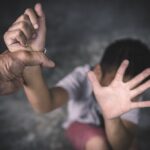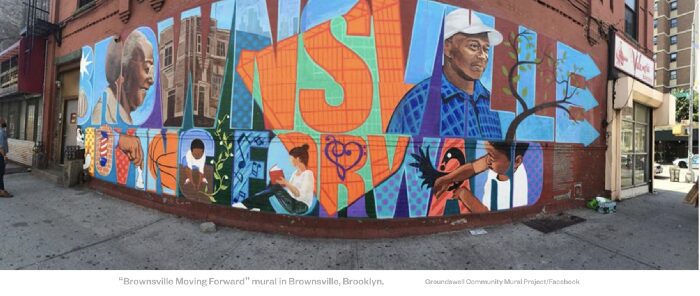
Statement on Violence Against Black Communities
June 2, 2020
Brownsville is Waging its Own Fight Against COVID-19 and Racism
August 26, 2020Healing and Protecting Children from Racial Trauma and COVID-19 Pandemic

Originally published by Erasma Beras-Monticciolo on Medium.com on June 12, 2020.
Our community doesn’t get a break. In the midst of this pandemic, we’re seeing a combustible mix of isolation, job loss, sickness, and feelings of being trapped and terrorized by an epidemic of police brutality. These experiences create exposure to toxic stress and leads to a decrease in the protective factors that are crucial to the health and well-being of children and families.
Our people are dying, and soon our children will too if we don’t establish a mechanism for responding to immediate needs and for strengthening the interpersonal bonds within families that are the vital buffers against chronic stress. Research on the social-emotional well-being of children shows us that for children to thrive and be safe, they must have the support of healthy families. For families to be healthy and resilient, they must be connected to an array of quality services and social supports which build on protective factors.
Grieving yet more losses of countless black lives due to institutionalized racism, by families who have already lost loved ones to violence and mass incarcerations, compounds the devastation of the pandemic on our community. During the current COVID-19 crisis, parents are also having to navigate a new set of demands almost daily, from managing virtual education with limited access to technology, to coping with the new anxieties that come with obtaining even the most basic supplies. For many families, it’s felt nearly impossible to keep track of the best way to stay healthy and care for themselves and their children.
Kids have lost 2+ months of school, which offered them a social network and represented a source of stability and safety in their lives. As the Executive Director of Power of Two, which supports families in Brooklyn, I was on a recent call with a local parent who shared how her 2-year-old was doing well but that her 9-year-old expressed hating his life. “I got so scared when he said that to me because I feel that way sometimes too.” She has no family network and no friends to rely on should something happen to her. So, she quit her job as a home health aide to be safe. But with her now very limited income, providing for herself and her kids has become a real challenge.
The little economic stability that families once had is now gone, causing many of them to spiral, creating a sense of being adrift, unprotected, and discarded. As summer approaches, and as the fight for equity and justice escalates, they are also faced with yet another challenge of not having the resources and services that were once available.
These issues and the anxiety they create, if left unchecked, can turn into toxic stress that can be transmitted to children. We have seen the impact that disinvestment and racist policies has had on black communities over generations. It has led to community disruptions; lack of opportunity, economic mobility and social capital; inadequate access to health services; and more. All of these stressors have deep impacts on a child’s entire life span and on a community’s ability to thrive.
According to the Harvard Center on the Developing Child, “when toxic stress response occurs continually, or is triggered by multiple sources, it can have a cumulative toll on an individual’s physical and mental health — for a lifetime.” Therefore, mitigating the social, emotional, and mental health impacts of the COVID-19 pandemic and confronting institutionalized racism is imperative as we stave off another wave of infections and rebuild.
With support from home visitors, parents can heal from the effects of racial trauma and strengthen their resilience through responsive parenting. Through responsive parenting, children too are buffered against the effects of toxic stress. Reviews of interventions by the World Health Organization revealed that programs focused on enhancing maternal responsiveness, particularly among the most vulnerable populations, resulted in better child health and development.
To help promote better health for families and children now and in the long-term, local government must recognize that parts of our culture and the systems in which we operate are toxic, lack equity and require healing. COVID-19 has exposed a deep disparity in access to vital resources that must be addressed, and that home visitors can help. Home visits, either in person or virtual, can be a lifeline. I have seen how our work helps dramatically increase the protective factors depleted by the corrosive effects of exposure to adversity and racial inequity. With support from home visitors, parents develop the tools to build their own resilience; buffer their children from toxic stress; and plan for a more certain and stable future.
This is new territory for everyone. And departments of education and health are frantically solving life-or-death problems every day. But the costs of getting this wrong are unacceptably high. The impacts on children’s emotional health and wellbeing could reach across generations if we do not take action now.
